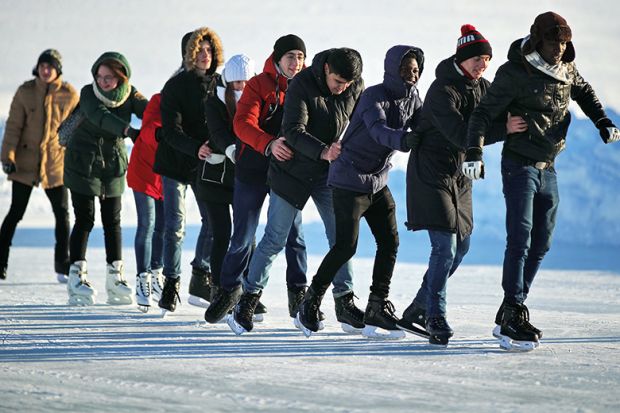Browse the full results of the World University Rankings 2018
Higher education is a complex enterprise that involves an extraordinarily diverse array of institutions – from regional colleges serving their local communities to globally renowned research universities pushing the frontiers of knowledge. It is influenced by the globalisation of economies and societies and the ever-increasing value to be gained from a solid research base, an educated population and an active participation in international scholarship. It is driven by myriad factors that reflect dynamic and constantly evolving political, economic, sociocultural and academic dimensions. Because of this, there is no one-size-fits-all model of higher education.
Nevertheless, common goals and objectives can be observed within different institutions in different countries, even on different continents. These include the growing importance of institutional reputation, visibility and competitiveness (often symbolised by position in university league tables); the competition for talented students and scholars; the drive to produce economic gains; and the focus on graduate employability and social engagement.
Since 2013, Russia has placed such goals on a more strategic footing. Under its Academic Excellence Initiative, the country aims to strengthen its position as an outstanding place for education and research, to enhance the profile of its universities, and to bolster the nation’s international competitiveness. This effort is known as “Project 5-100” because a key goal is to propel five of the country’s universities into the top 100 of international rankings by 2020.
At the very heart of the strategy is internationalisation.
Under Project 5-100, 21 leading Russian universities, together with Lomonosov Moscow State University and Saint Petersburg State University, are giving urgent, close attention to internationalisation as a means to drive up the quality of education and research. Since the project was launched, Russian institutions, especially the leading technical universities such as the National Research Nuclear University MEPhI, have become more competitive in their recruitment of international students and faculty.
Among MEPhI’s growing international roster of undergraduates and postgraduates are students from many countries – particularly Algeria, Jordan, Myanmar, Vietnam, Bangladesh, Egypt, Romania, Kazakhstan, Armenia and Tajikistan. By enshrining internationalisation as a key component of its strategy, MEPhI has been able to strengthen its pioneering work in nuclear sciences education.
Download a copy of the World University Rankings 2018 digital supplement
And it has not been alone in rising to the challenges of today’s higher education environment. Other technical universities are also improving the quality of their offerings, boosting their research output and impact, and challenging the standing of rival universities, as evidenced by their ascension in global subject-level rankings.
But while internationalisation is being raised to a priority in most countries, emerging economies and developed countries alike, the rhetoric does not always match the reality, and in many countries success is uneven and there is a long way to go.
Even in Russia, with its strong technical universities and its determination to make rapid improvements (which are already apparent), there is still much to be done. Barriers to progress remain. Some are linked to funding and regulatory constraints, but there are also institutional issues of language proficiency and the nature of academic engagement and reward. However, Russia is intent on dismantling these barriers and clearing the path to success.
To this end, on 2 June this year, Russia published a resolution developed by the Ministry of Education and Science that removes what has been a major impediment deterring foreign postgraduates from pursuing their studies in Russia. Under the decree, foreigners studying in the country’s universities may now defend their thesis in their native language rather than in Russian.
As Maksim Rumyantsev, vice-rector for academic affairs at the Siberian Federal University, explains: “This resolution empowers and creates more opportunities for higher education institutions, especially in terms of internationalisation. Russian universities have been giving lectures in English for a long time…thesis defence in a foreign language virtually removes the final barriers for foreign researchers in this country.”
This move is part of a constantly evolving response to globalisation in Russia. We expect mobility and cross-border delivery of higher education to continue growing, but we will place more focus on the courses of study and learning outcomes to ensure internationalisation for all.
Language versatility and openness will become increasingly important to ensure high-quality education and research.
Vladimir Filippov, rector of RUDN university and professor chairman of the Higher Attestation Commission at the Ministry of Education and Science.
Register to continue
Why register?
- Registration is free and only takes a moment
- Once registered, you can read 3 articles a month
- Sign up for our newsletter
Subscribe
Or subscribe for unlimited access to:
- Unlimited access to news, views, insights & reviews
- Digital editions
- Digital access to THE’s university and college rankings analysis
Already registered or a current subscriber? Login








